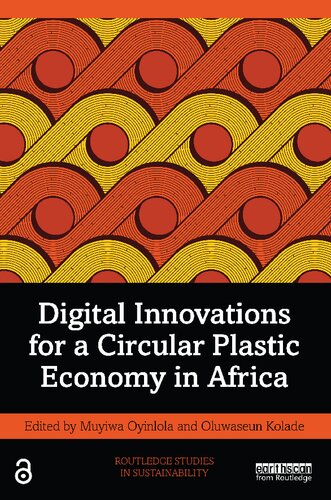

Most ebook files are in PDF format, so you can easily read them using various software such as Foxit Reader or directly on the Google Chrome browser.
Some ebook files are released by publishers in other formats such as .awz, .mobi, .epub, .fb2, etc. You may need to install specific software to read these formats on mobile/PC, such as Calibre.
Please read the tutorial at this link: https://ebookbell.com/faq
We offer FREE conversion to the popular formats you request; however, this may take some time. Therefore, right after payment, please email us, and we will try to provide the service as quickly as possible.
For some exceptional file formats or broken links (if any), please refrain from opening any disputes. Instead, email us first, and we will try to assist within a maximum of 6 hours.
EbookBell Team

0.0
0 reviewsPlastic pollution is one of the biggest challenges of the twenty-first century that requires innovative and varied solutions. Focusing on sub-Saharan Africa, this book brings together interdisciplinary, multi-sectoral and multi-stakeholder perspectives exploring challenges and opportunities for utilising digital innovations to manage and accelerate the transition to a circular plastic economy (CPE).
This book is organised into three sections bringing together discussion of environmental conditions, operational dimensions and country case studies of digital transformation towards the circular plastic economy. It explores the environment for digitisation in the circular economy, bringing together perspectives from practitioners in academia, innovation, policy, civil society and government agencies. The book also highlights specific country case studies in relation to the development and implementation of different innovative ideas to drive the circular plastic economy across the three sub-Saharan African regions. Finally, the book interrogates the policy dimensions and practitioner perspectives towards a digitally enabled circular plastic economy.
Written for a wide range of readers across academia, policy and practice, including researchers, students, small and medium enterprises (SMEs), digital entrepreneurs, non-governmental organisations (NGOs) and multilateral agencies, policymakers and public officials, this book offers unique insights into complex, multilayered issues relating to the production and management of plastic waste and highlights how digital innovations can drive the transition to the circular plastic economy in Africa.
The Open Access version of this book, available at http://www.taylorfrancis.com, has been made available under a Creative Commons Attribution-Non Commercial-No Derivatives (CC-BY-NC-ND) 4.0 license.